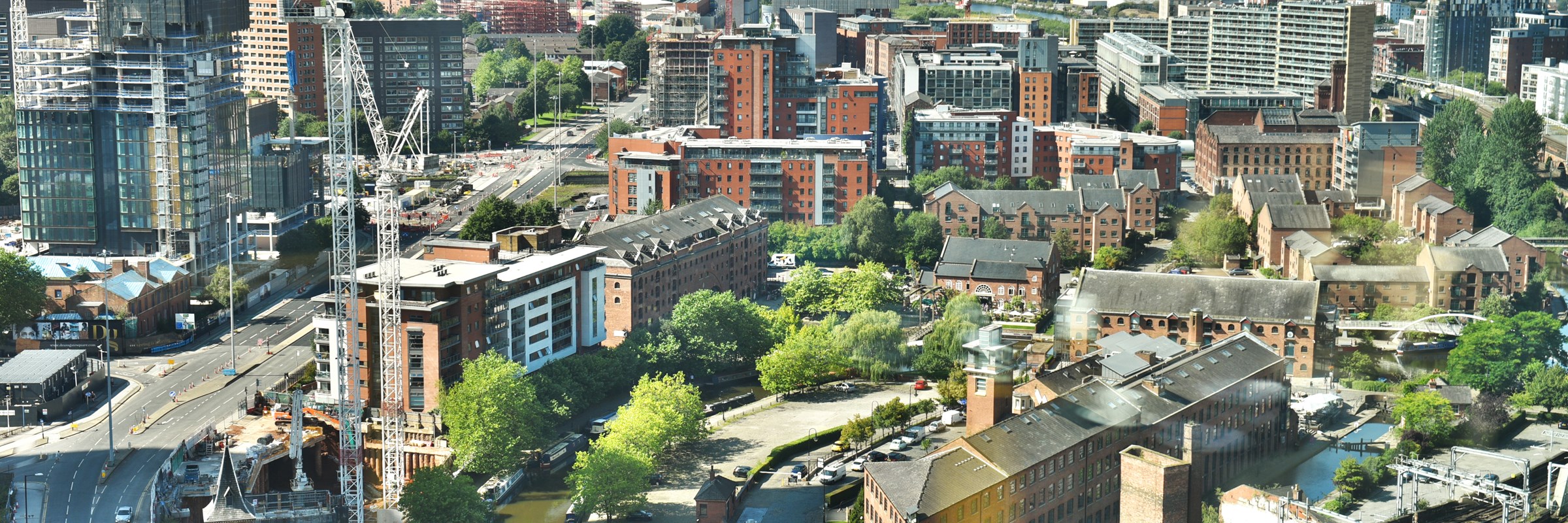
Young professionals from across Greater Manchester to help shape COVID-19 recovery
A NEW panel of young professionals will give their perspective on plans for the coronavirus recovery across Greater Manchester, with a special focus on infrastructure and sustainable development.
The Greater Manchester Young Professionals Panel (GMYPP) was established last February to provide insights and input from young professionals in the city-region working in the areas of planning, economic development, housing, infrastructure, and sustainability.
The group is made up of men and women from a range of different backgrounds and organisations, including Manchester City Council, global accountancy and consultancy firm Deloitte, architects and urban planners BDP, international professional services firm WSP, Homes England and the Environment Agency.
The panel members have made a series of recommendations in a report to the Greater Manchester Combined Authority (GMCA), including engagement with higher education institutions, investing in public transport and cycling, increasing digital outreach, and lobbying central government for more devolved powers.
The panel reports to the GMCA Planning and Housing Commission, chaired by Paul Dennett, City Mayor of Salford and GMCA portfolio lead for Housing, Homelessness and Infrastructure. They will feed in their views on issues and actions, suggesting new ideas to help the city-region build back better and fairer following the impact of the pandemic.
Cllr John Blundell, who has responsibility for regeneration at Rochdale Council, has been appointed to chair the Young Professionals Panel during its inaugural year.
Cllr Blundell said: “As a young professional working in the regeneration field, I know that people who are at the start of their career often have a different perspective on things and can bring something extra to the table. The Greater London Authority and National Infrastructure Commission have their own young professional panels, so I thought it would be a great idea to replicate it.
“Although we are an informal group and don’t have decision making powers, we work really well within the GMCA family and provide important feedback and ideas. Coronavirus has brought a whole new perspective to our work, but we want to focus on the opportunities it brings to create a much better future, with improved digital infrastructure, more flexible public transport policy and improved housing, to name a few.”
As part of their focus on the post-coronavirus recovery, the panel has highlighted a number of priority areas including:
- Addressing acute housing need, manifesting as a humanitarian homelessness crisis
- Improving the quality of housing stock and access to green space
- Further development of digital infrastructure
- Ensuring equality of opportunity and that all communities benefit from the economic recovery
- Working with the higher education sector to promote courses to harder to reach groups and improve online access
- Reviewed fare structures on public transport to cater for major shifts in demand
- Further development of cycling and walking routes to encourage safe, sustainable travel
Paul Dennett said: “The Greater Manchester Strategy commits to supporting young people to engage positively in their communities, and I really value their input and insights. I am a strong advocate of co-production and really like how the panel have worked together to structure the recovery plan into three main themes: instilling confidence, people-centric recovery, and forward thinking.
“The report highlights a number of cross cutting issues, priorities and activities to be undertaken in the short medium and longer term. Young professionals with skills in regeneration, planning, place-making, infrastructure are central to the delivery of sustainable development, and it is only through sustainable development that we will deliver our vision to make Greater Manchester one of the best places in the world to live, work, study and visit.”
Article Published: 18/06/2020 17:52 PM



